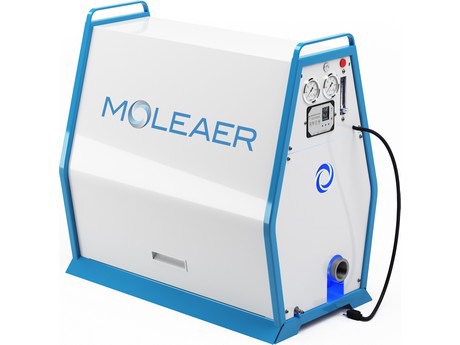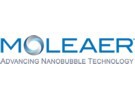Moleaer, a nanobubble technology company, in partnership with researchers from Virginia Tech, have evaluated and concluded that oxygen-filled nanobubbles are successful in disrupting microbial biofilms, including Escherichia. coli, Listeria innocua, and Vibro parahaemolyticus. The study, published in Food and Bioprocess Technology, observed nanobubbles reducing and effectively eliminating microbes on plastic and stainless steel surfaces typically used for food handling within five minutes of exposure.
Moleaer’s nanobubble technology injects trillions of oxygen-rich nanobubbles into water. These nano-sized bubbles, 2500 times smaller than a grain of salt, increase the oxidation-reduction potential (known as ORP) which treats or eliminates pathogens and biofilm through a process known as oxidation.
Reza Ovissipour, Assistant Professor, Department of Food Science and Technology, Seafood AREC, Virginia Tech, said: “Based on our research, we found that nanobubbles induced a complete reduction of common biofilms found in the food industry. This proves useful with eliminating microbes which have built resistance to standard cleaning products and could be used to enhance conventional sanitizer’s efficacy."
“Following recent romaine lettuce recalls, this latest research is promising for our food industry. From cleaning food prep surfaces to washing leafy greens, fruits and vegetables, our technology has the potential to provide a powerful sustainable and chemical-free enhancement to traditional cleaning methods,” said Nick Dyner, CEO, Moleaer.

This follows a previous research paper from Virginia Tech, that proves that Moleaer’s nanobubbles disrupt and eliminate harmful pathogens that cause common seafood-related illnesses. Researchers from Arizona State University also recently concluded that nanobubbles are able to create an advanced oxidation process (AOP) capable of inactivating pathogens and removing stubborn biofilms.
Beyond eliminating pathogens such as E. coli and Listeria, nanobubbles have been providing farmers and indoor growers at more than 150 facilities and farms worldwide with a chemical-free irrigation solution. Leafy greens and vegetables grown with nanobubbles have increased plant and root health, shortened growing times and increased yields. At a time when our food industry is facing challenges from severe droughts and water shortages, and complications from the COVID19 pandemic, increasing crop yields and quality, while reducing overhead costs and crop loss is critical for many farmers and growers.
For more information: Justin Kaiser
Justin Kaiser
Moleaer
[email protected]
www.moleaer.com
